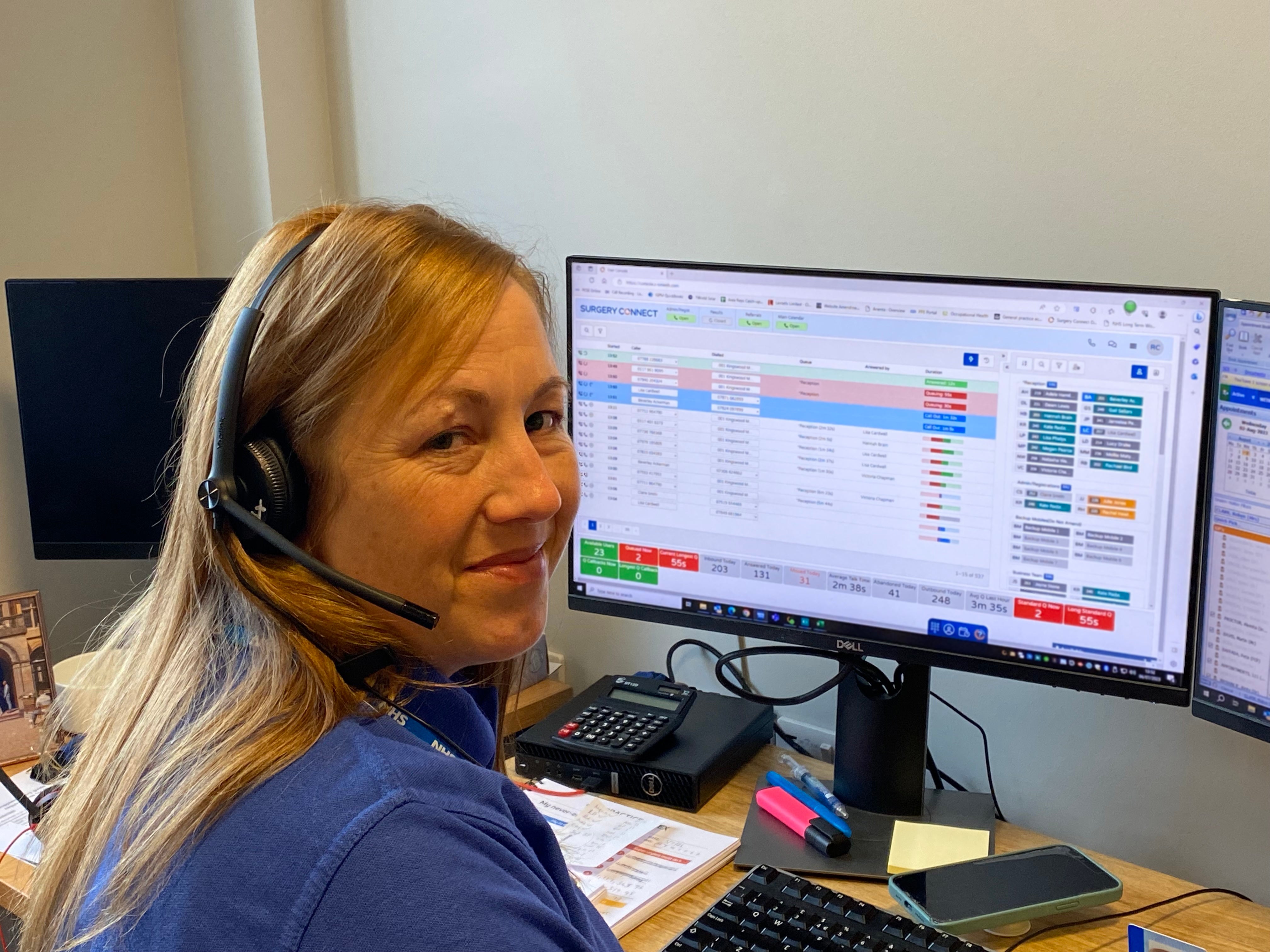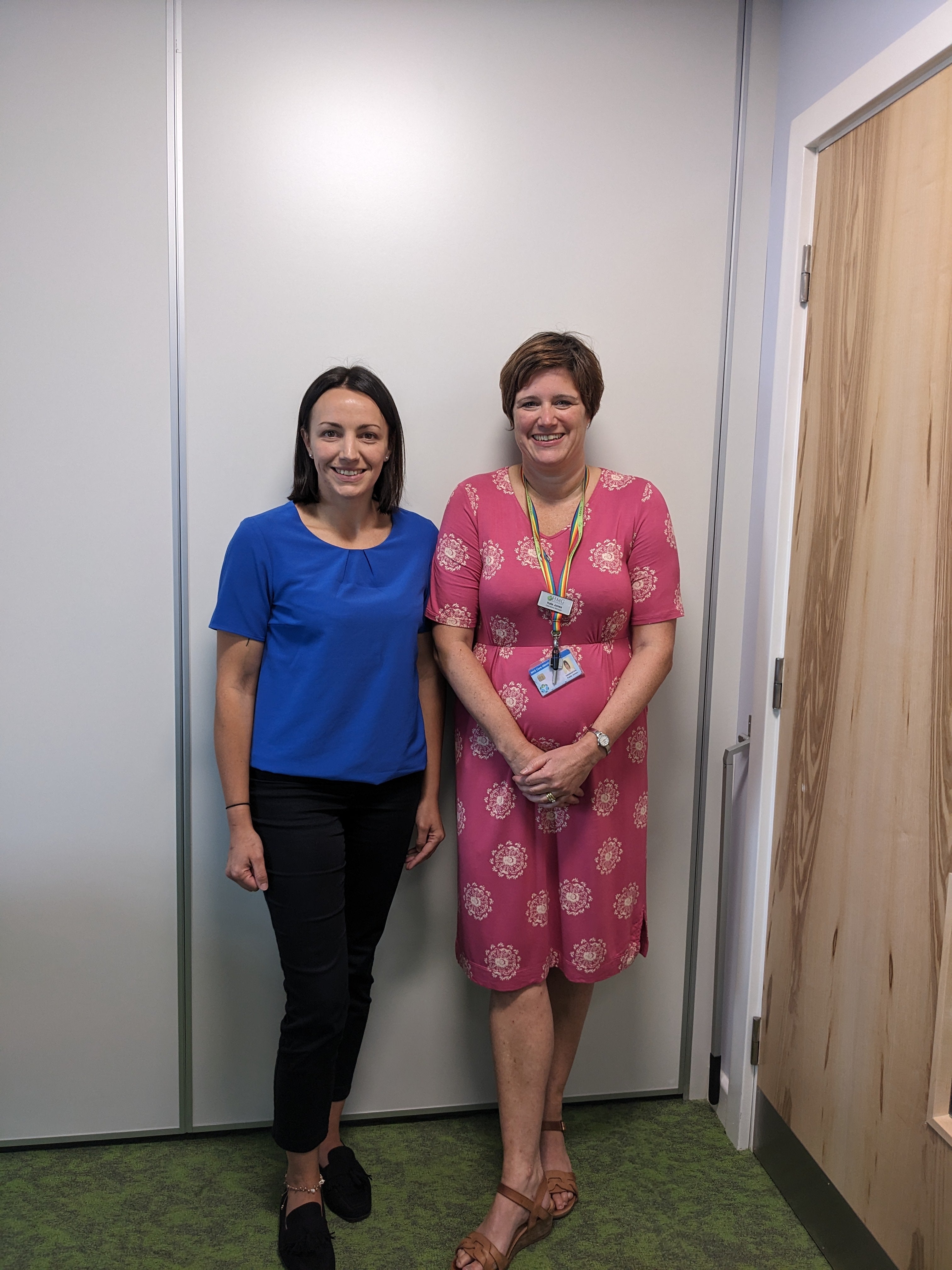Getting the right care through your GP surgery

Millions of people make use of GP practices every year, but the pandemic has meant that these vital local health centres have had to rapidly evolve to meet our changing needs.
There are now more ways to get appointments, ask for advice and get help, such as using online forms on GP websites to request care from your laptop or mobile.
The introduction of tens of thousands of new health and care staff into GP surgery teams has enabled more patients to get the care they need from the right health professional, rather than always seeing a GP first.
This also has the benefit of freeing up more GP appointments for those who really need them, helping to tackle the ‘8am rush’. These expanded teams work under the supervision and guidance of GPs.
When you contact your local surgery, whether that’s online, by phone or in person, trained members of the reception team will ask what you need help with, in confidence.
The practice team will use the information to determine who is the most suitable doctor, nurse, or other health professional, to help.
The information you provide to them enables them to assess your needs and ensure you get the right kind of care, no matter how you got in touch.
Receptionists can also often help identify services you can access with a GP referral, and they can make appointments for new kinds of care or services.
Rachael Bird, 41, a reception manager at Kingswood Health Centre in Bristol, ensures the patients registered with her surgery get the help they need.
“Sometimes it’s really hard to reassure patients when they have it firmly in mind to see [a] GP only. We encourage them and say to them we have paramedics, nurse practitioners – they’ve all been trained to deal with these sorts of problems,” she says.
"I say to them a GP is always on hand if the nurse practitioner is unsure, but they are always trained to do these roles. They deal with this all day long, in and out and the problem will be resolved. If it can’t they’ll then be referred to somebody who can do it.”
The changes made to the way you request help and receive the care you need from your GP practice are designed to improve your experience and make it easier for you to access a wider range of help, closer to home.
Having a range of health professionals at your general practice can help you to receive the right care more quickly.
The important thing to remember is that no matter how you request help from your practice, you will get the care you need from the right health professional.
Care navigator Liz Morris, 37, and operations manager Kate Jones 45, both work for the Hereford Medical Group, a collection of five GP surgeries that merged in 2018 and now have 49,500 patients.
Liz says the training she has received ensures she is able to assist patients when they contact the surgery.
“We get a lot of training when we first start. We have online training we all go through before we start – it’s two weeks and intense,” she explains.

“You learn about all aspects of the job including the most appropriate clinical routes you’ve got. Then you spend time shadowing other people doing the role and when you do start, you’re coached on how best to channel those patients you’re dealing with.”
Kate adds: “With skin lesions, we can request a photograph and get that to a doctor and it can be done by phone but with a stomach problem, they need to feel the abdomen, so a face to face appointment is needed.”
The healthcare professionals who are there to help you
Reception Team
Staff in your GP practice’s reception team are specially trained to know about the services available to you at your GP practice and in your area. The information you provide to them enables them to assess your needs and ensure you get the right kind of care, no matter how you got in touch.
They can help by:
· getting you an appointment with the right health professional as quickly as possible
· identifying services you can access with a GP referral
· making appointments for new kinds of care or services you may not be aware of.
Care Coordinators
Care Coordinators work with people who may need extra support to navigate the health and care system, helping to connect them to the right services or professionals at the right time. Care Coordinators act as a central point of contact to ensure support is available to help people manage their care.
They can help by:
· preparing you for upcoming conversations about your health and care
· monitoring your health and care needs and responding to any changes
· supporting you to understand and manage your care.
Social Prescribing Link Workers
Social Prescribing Link Workers help people to focus on their social, emotional, and physical wellbeing, working alongside their medical team. They give people time to focus on what matters to them, helping to connect them with local groups and services for a range of practical and emotional support. This could include physical activities and social groups, volunteering and gardening, or even debt and housing advice.
They can help by:
· supporting you to manage your health and wellbeing
· giving you time to focus on what matters to you
· helping you to access support services and activities.
Paramedics
Paramedics work in a variety of roles within general practice. Their training means that they are used to working with people with a range of health conditions from minor injuries to more serious conditions such as asthma attacks. They help manage routine or urgent appointments and carry out home visits.
They can help by:
· assessing and treating certain health conditions
· attending home visits
· ordering tests and interpreting results.
Physiotherapists
Physiotherapists in general practice are experts in musculoskeletal conditions. They can assess, diagnose and treat a range of complex muscle and joint conditions, reducing the likelihood of needing a referral to a hospital team. They can also arrange access to further treatment, investigations and specialists when needed.
They can help by:
· diagnosing and treating muscular and joint conditions
· advising on how to manage your condition
· referring you on to specialist services.
Physician Associates
Physician Associates diagnose and treat a wide range of health conditions. They work alongside GPs and the wider practice team to provide care to people, including those with long-term conditions.
They can help by:
· diagnosing and treating certain health conditions
· arranging tests and analysing results
· performing physical examinations.
Health and Wellbeing Coaches
Health and Wellbeing Coaches support people to take steps to improve their physical and mental health conditions, based on what matters to them. They help people develop their knowledge, skills, and confidence in managing their health, to prevent long-term illness, and any existing conditions from getting worse.
Clinical Pharmacists
Clinical Pharmacists are experts in medicines and can help people stay as well as possible. They can support those with long-term conditions like asthma, diabetes and high blood pressure, or anyone taking multiple medicines, to make sure their medication is working. Many Clinical Pharmacists can also prescribe medicines. (Please note that here we are talking about clinical pharmacists who work as part of a general practice team, not those who are based in community pharmacies).
They can help by:
· reviewing your medicines
· agreeing and making changes to your prescriptions
· advising about medicines and possible side effects.
Pharmacy Technicians
Pharmacy Technicians play an important role within general practice by supporting the work of Clinical Pharmacists. They can update medication records and offer people advice on how to get the most out of their medicines.
They can help by:
· showing you how to use your medicines
· supporting Clinical Pharmacists to review your existing medications
· advising you on your lifestyle choices.
Nursing Associates
Nursing Associates work under the guidance of a nurse or another health professional. They help with routine health checks, wound care, and provide patients with general health and wellbeing advice.